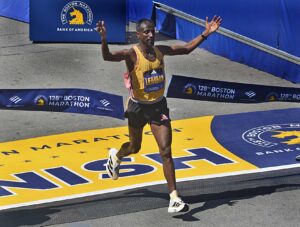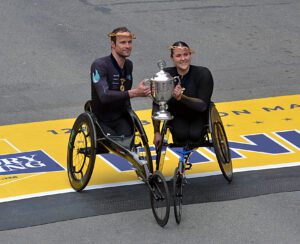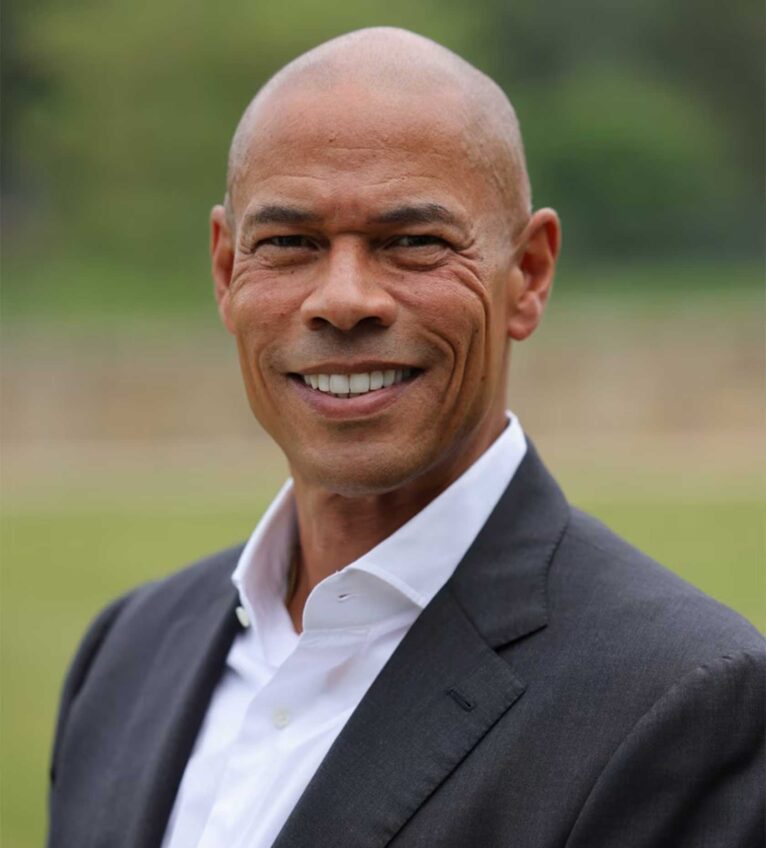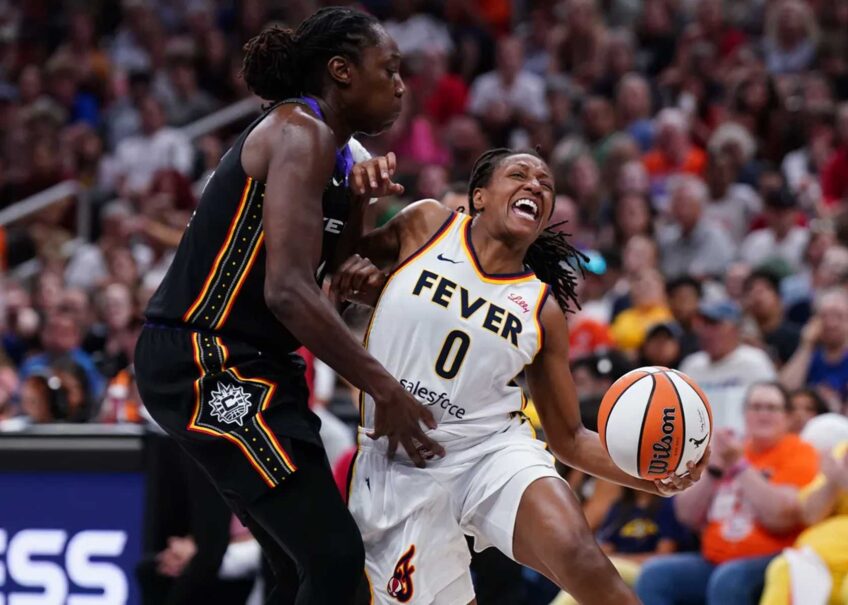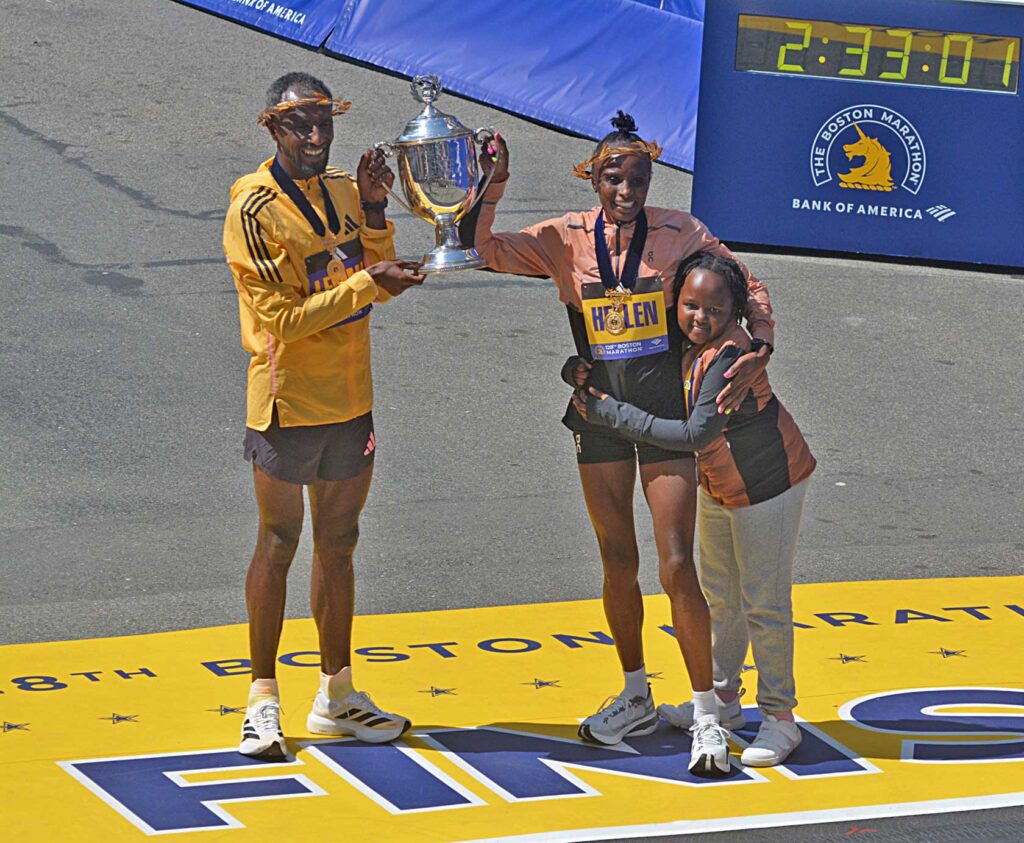
Banner Sports sponsored by Cruz Companies
The 128th edition of the Boston Marathon played to the script as male and female runners of color continued the current trend of dominant performances in this event. Sisay Lemma of Ethiopia took the lead from the start of the race and completed his surprising wire-to-wire victory in 2 hours, 6 minutes, 17 seconds.
Most people felt that Evans Chebet, winner of the last two Boston Marathons, would step deeper into the record books with a third straight Boston Marathon. But his dream of that lofty accomplishment was quickly put to rest when Lemma bolted from the pack to establish a significant lead. There was a consensus that Lemma went out too fast and would fade in the later stages of the 26.2-mile race, allowing the pack of big-name, experienced marathoners to run him down. But that didn’t happen Monday as Lemma took the challenge of Boston’s famed Marathon and conquered it.
It was strange to see one runner so clearly dominate this race. Most television shots showed him alone, with none of his marathon competitors anywhere in sight. In past marathon interviews, most have told me that running this race with a big lead is much more complicated.
“It is much harder to run this race when you are alone with no one putting real pressure on you,” Bill Rogers, the four-time Boston Marathon winner once said. “There is no one to push you.”
Sisay Lemma did not need anyone to give him a shove. He bolted to a historic Boston Marathon win. Lemma explained after the race, “Several times I’ve dropped out of the race before. But today, I won, so I’ve redeemed myself.”
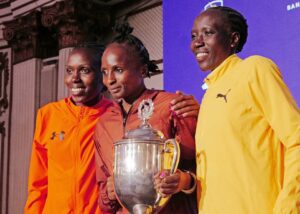
Winner Hellen Obiri (center) with Sharon Lokedi (left), who finished second, and Edna Kiplagat, who finished third. PHOTO: DON WEST
Lemma’s countryman, Mohamed Esa, finished second, and the aforementioned Evans Chebet crossed the finish line third in 2:07:22.
The Women’s competition was a different story.
Hellen Obiri of Kenya used her classic “late kick” to pull away from the pack around the 21-mile mark. She and fellow countrywoman and friend Sharon Lokedi put on a furious duel over the last three miles of the race before she could secure her second straight Boston Marathon victory.
Her winning time was 2 hours, 22 minutes, 37 seconds. Hellen Obiri is the first woman to repeat as Boston Marathon Champion since Catherine Ndereba of Kenya repeated the feat in 2004 and 2005. She and Sisay Lemma each receive $50,000 for their respective victories.
The wheelchair competition crowned Eden Rainbow-Cooper of Great Britain and Marcel Hug of Switzerland. The 22-year-old Rainbow-Cooper captured the women’s title in 1 hour, 35 minutes, and 11 seconds. She is the first athlete from the United Kingdom to win this Marathon.
“I just wanted to come here and finish the race and just have fun,” she said. “So, first place, I can’t believe it.”
Rainbow-Cooper also opined about competing without a sponsor.
“I’ve been so lucky to have so much support around me, but yeah, it’s a difficult sport and an expensive sport,” she said.
Hug, despite crashing and receiving injuries to his hands, won the men’s title with a time of 1 hour, 15 minutes, 32 seconds, shattering the course record time of 1:17:06.
“I had a crash,” he said. “I think it was at the fire station corner. I just had too much, way too much, pressure on the steering, so it was my fault. I didn’t steer properly and went into the barriers.”
Cooper and Hug will receive $40,000 for their respective victories, with Hug earning bonus money for setting a new course record. It was Hug’s 7th Boston Marathon victory and his 20th marathon title.
It has been said before and deserves to be said repeatedly: Some of the most faithful heroes of this event are the people who run the Boston Marathon and all other marathons worldwide. They accept the challenge of 26.2 grueling miles of sheer punishment to their bodies, testing their minds and will for a personal sense of achievement — a special mention for every runner who ran for a charitable cause.
As the Boston Athletic Association — the people who run the Boston Marathon — faces a lawsuit surrounding the fair treatment of minority spectators, it is a strange irony that this road race, dominated by Caucasian runners for so many decades, finds itself in a lawsuit with minority organizations while people of color from African nations dominate the actual running of the event.

